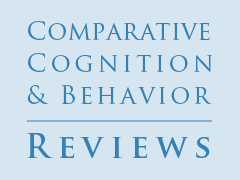A Comparison of Hearing and Auditory Functioning Between Dogs and Humans
Reading Options
Abstract
Given the range of tasks that requires dogs and humans to work effectively together, it is important for us to appreciate the similarities and differences in hearing ability across the two species, as well as the limits of our knowledge of this comparative information. Humans often assume that dogs’ hearing abilities are similar to their own and try to communicate with them verbally as they do with other humans. In the first part of this review, we compare the auditory system of the two species in relation to their ability to function generally as a sound amplification and detection system before considering the specific capacities of the system in the second part. We then examine the factors that disturb hearing function before reviewing a range of potentially problematic behavioral responses that are closely associated with the functioning of the auditory system. Finally, we consider important aspects of comparative auditory perception and related cognitive processes. A major observation of this review is how little research has been done in investigating the auditory capabilities of the dog. There may be significant mismatches between what we expect dogs (and perhaps specific types of dog, given historic functional breed selection) can hear versus what they can actually hear. This has significant implications for what should be considered if we wish to select specific dogs for work associated with particular hearing abilities and to protect and maintain their hearing throughout life. Only with a more complete understanding of the dogs’ hearing ability compared with our own can we more fully appreciate perceptual and associated cognitive differences between the species alongside behavioral differences that might occur when we are exposed to a given soundscape.
Keywords: hearing,, auditory functioning, dog, human

